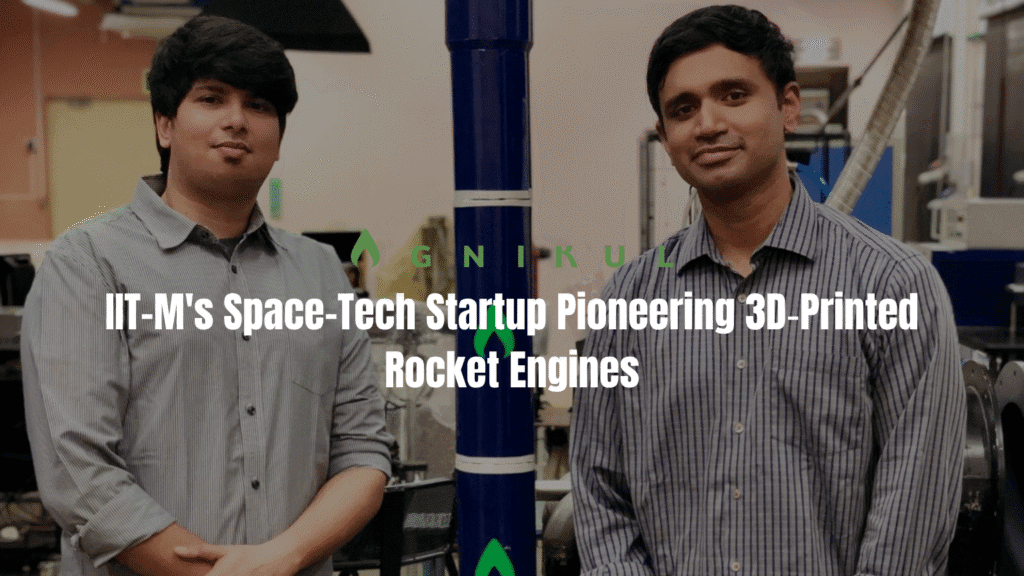Vision Born in Academia
Founded in December 2017, Agnikul Cosmos emerged from the IIT Madras Research Park with a bold mission: build customizable, small-lift launch vehicles using 3D-printed rocket engines. Co-founders Srinath Ravichandran, Moin SPM, Satyanarayanan Chakravarthy, and Janardhana Raju combined deep combustion expertise and engineering experience to reimagine affordable, efficient space access.
Innovating the Heart: Agnilet Engine
Agnikul’s flagship innovation—the Agnilet engine—is entirely 3D-printed in one piece. This isn’t just a technological showcase; it’s a strategic tool:
- It cuts part counts, assembly overhead, and production time—manufacturing a full engine in ~75 hours.
- Works on a semi-cryogenic mix (kerosene & liquid oxygen), combining performance with simplicity.
By February 2021, Agnikul fires its first full Agnilet test, and in November 2022, they inaugurated India’s first private launchpad and mission control center at Sriharikota, in partnership with ISRO and IN-SPACe.
First Milestone: Agnibaan SOrTeD Suborbital Launch
On 30 May 2024, Agnikul achieved a major breakthrough:
- Launched Agnibaan SOrTeD, the first suborbital rocket powered by a single-piece 3D-printed, semi‑cryo engine from its private “Dhanush” pad.
- Demonstrated controlled vertical ascent, pitch-over maneuvers, and flight control—a global first.
The mission, a testament to indigenous engineering, was hailed by ISRO and PM Narendra Modi as “a remarkable feat”.
Onward to Orbit: Agnibaan Rocket
Building on SOrTeD’s success, Agnikul is fast-tracking Agnibaan, its 2–3 stage rocket capable of delivering 100–300 kg to LEO (~700 km). Development highlights include:
- Completion of Agnilet qualification tests
- Patented plug-and-play clustered engine architecture
- Final test rigs underway; targeted orbital launch by late 2025
Capital, Collaboration & Recognition
Agnikul has raised ~$40 million to date, including a $26.7 M Series B in October 2023. Partnerships include ISRO, IN-SPACe, IIT Madras, and private investor Anand Mahindra.
With ~150 employees and growing, they now stand among India’s pioneering space-tech companies alongside Skyroot and Pixxel.
Founder-Led Lessons for Innovators
- Translate deep domain knowledge into solutions — Their combustion expertise led to 3D-printed engines.
- Platform thinking matters — Agnibaan’s modular design caters to varied payloads and clients.
- Private-public synergy — Access to ISRO infrastructure through IN-SPACe partnership accelerated development.
- Iterate to success — Four suborbital attempts preceded the breakthrough launch.
- Think globally — Cost-effective, scalable solutions suitable for international small-satellite operators.
Final Word: Beyond the Horizon
Agnikul Cosmos has already rewritten India’s private space narrative—first private launchpad, first 3D-printed engine, first semi-cryogenic flight. Their journey from lab to pad exemplifies tech-driven entrepreneurship and indigenization of space capabilities.
As they target orbital missions in 2025, the startup is not just launching rockets—it’s launching aspirations, marking India’s entry into the global small-satellite services market.


